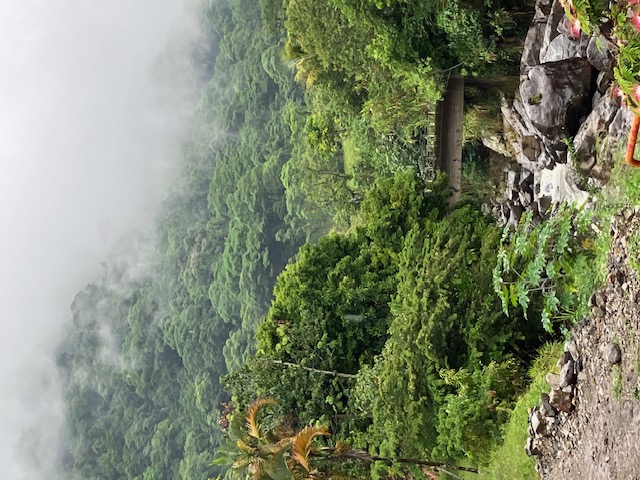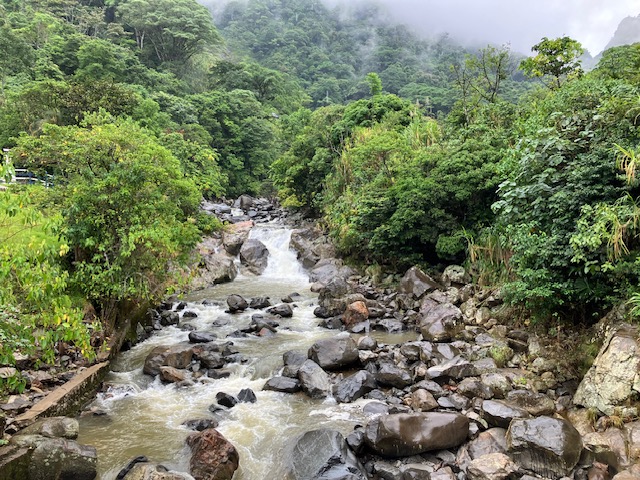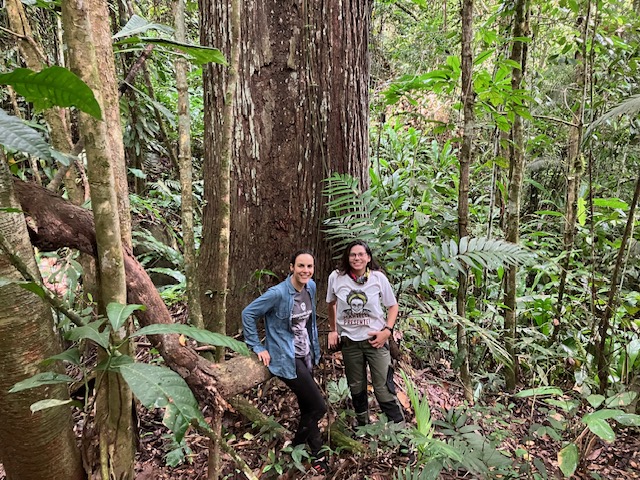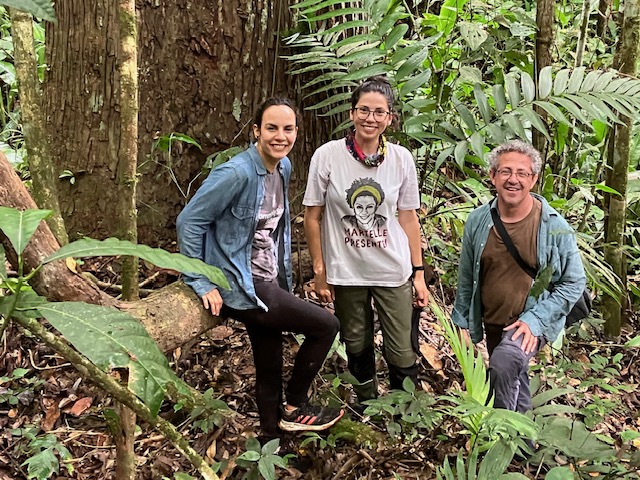During the week of July 24, 2023, I travelled with Ingrid Chanca and Estefania Muñoz to the Porce region in Colombia to sample gases inside the forest canopy for radiocarbon analyses. Our previous work shows that these forests have a mean transit time of carbon of approximately 11 years, and related work at ATTO is confirming this prediction. Nevertheless, we wanted to sample air in this forest for radiocarbon analyses on atmospheric carbon dioxide (CO2). We expect that the average radiocarbon value of the respired CO2 in this forest would be around 17.5 permil in Δ14C.
Preparations
As opposed to ATTO, we don’t have access to tower infrastructure in these forests, therefore we needed to setup inlet tubes along a tall tree. Javier, a professional and trained tree climber installed one inlet at 20 m and another at 4 m.
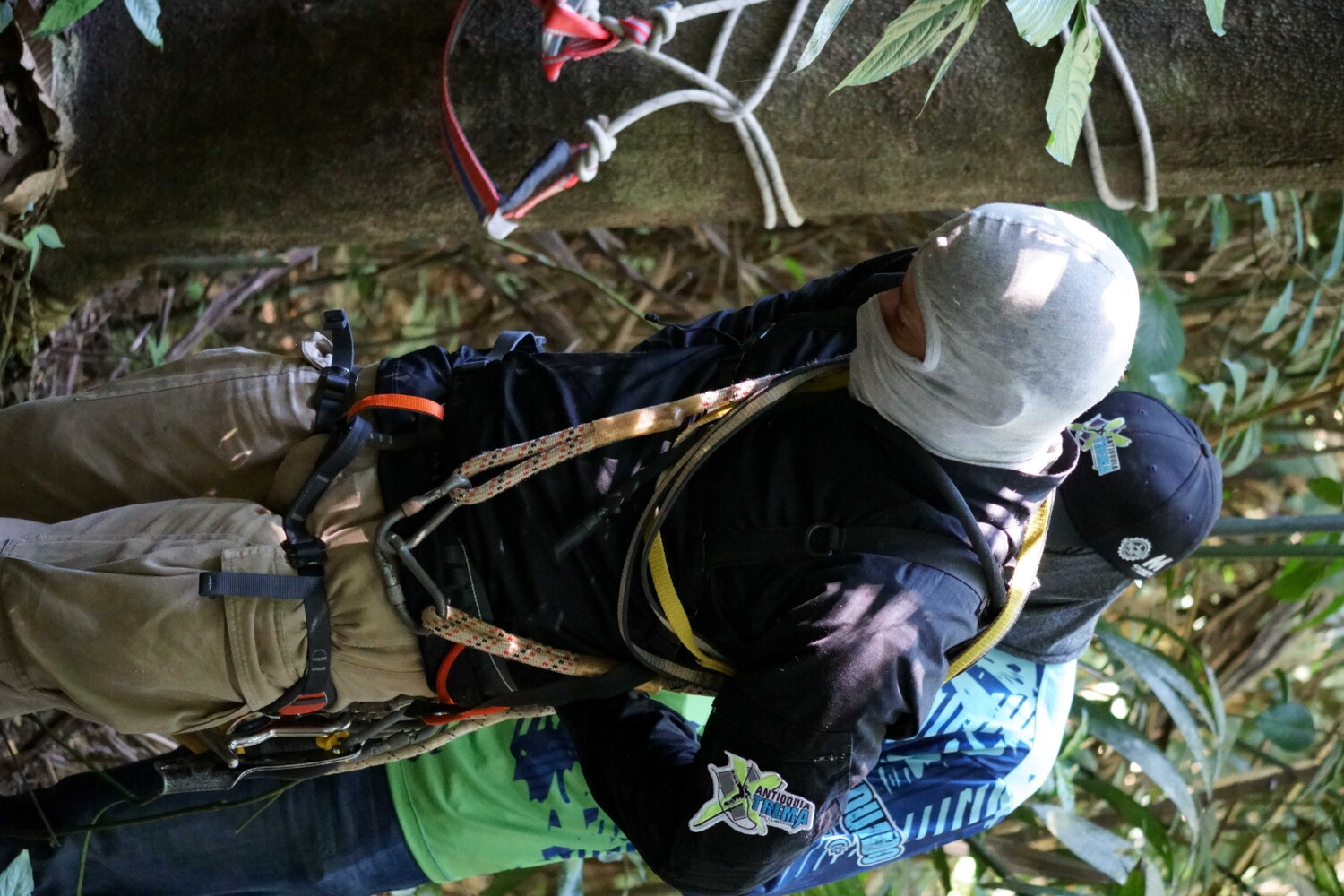
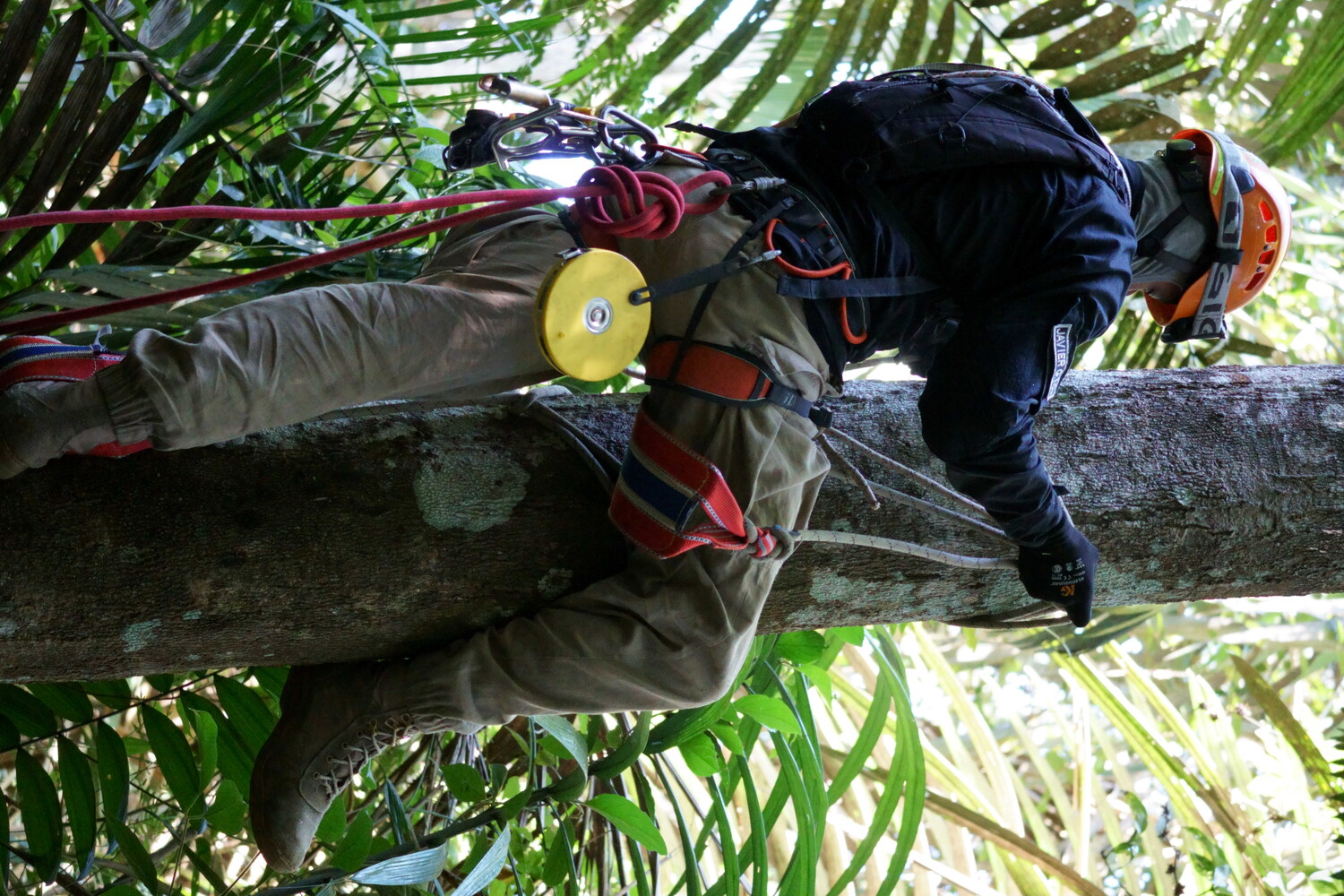
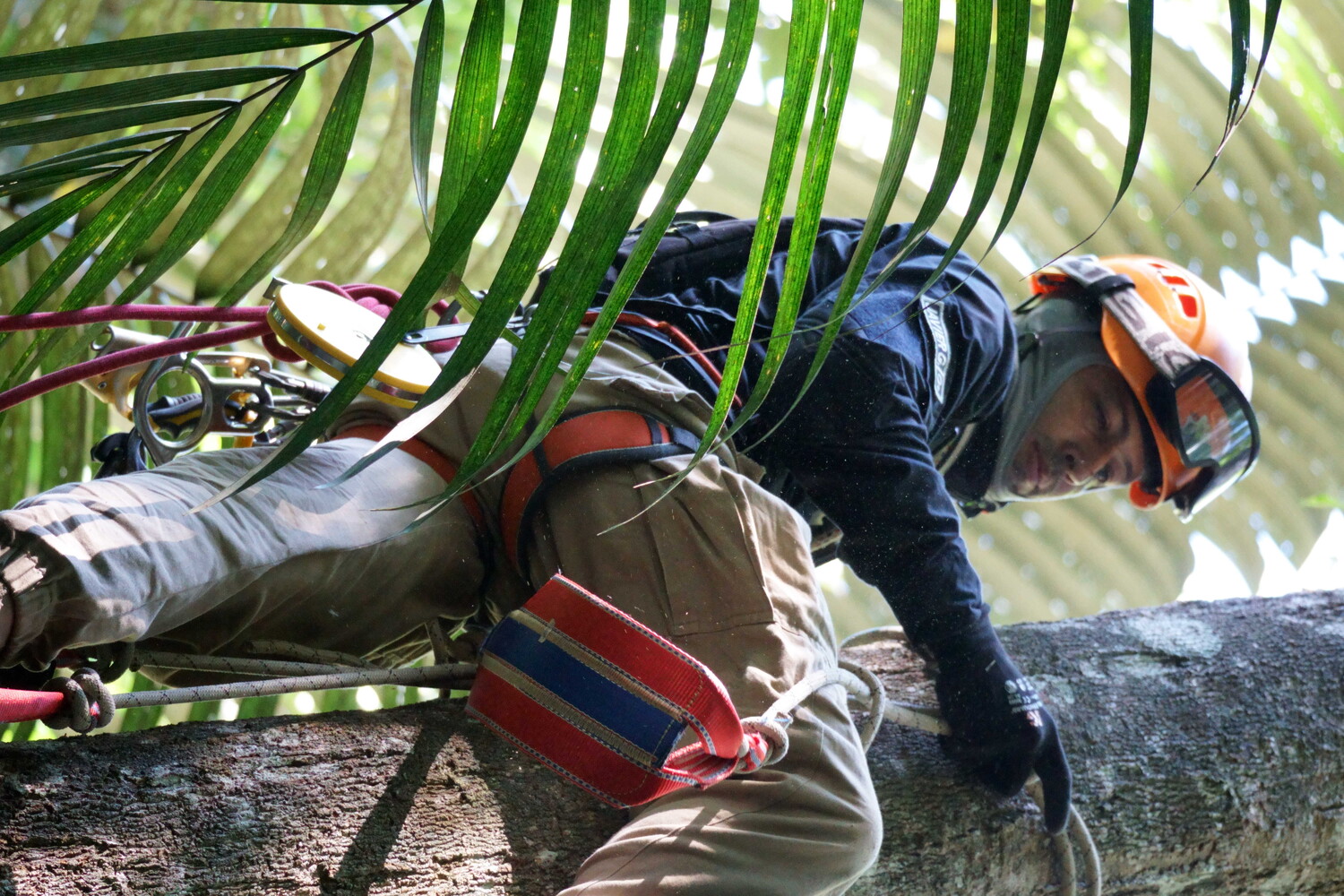
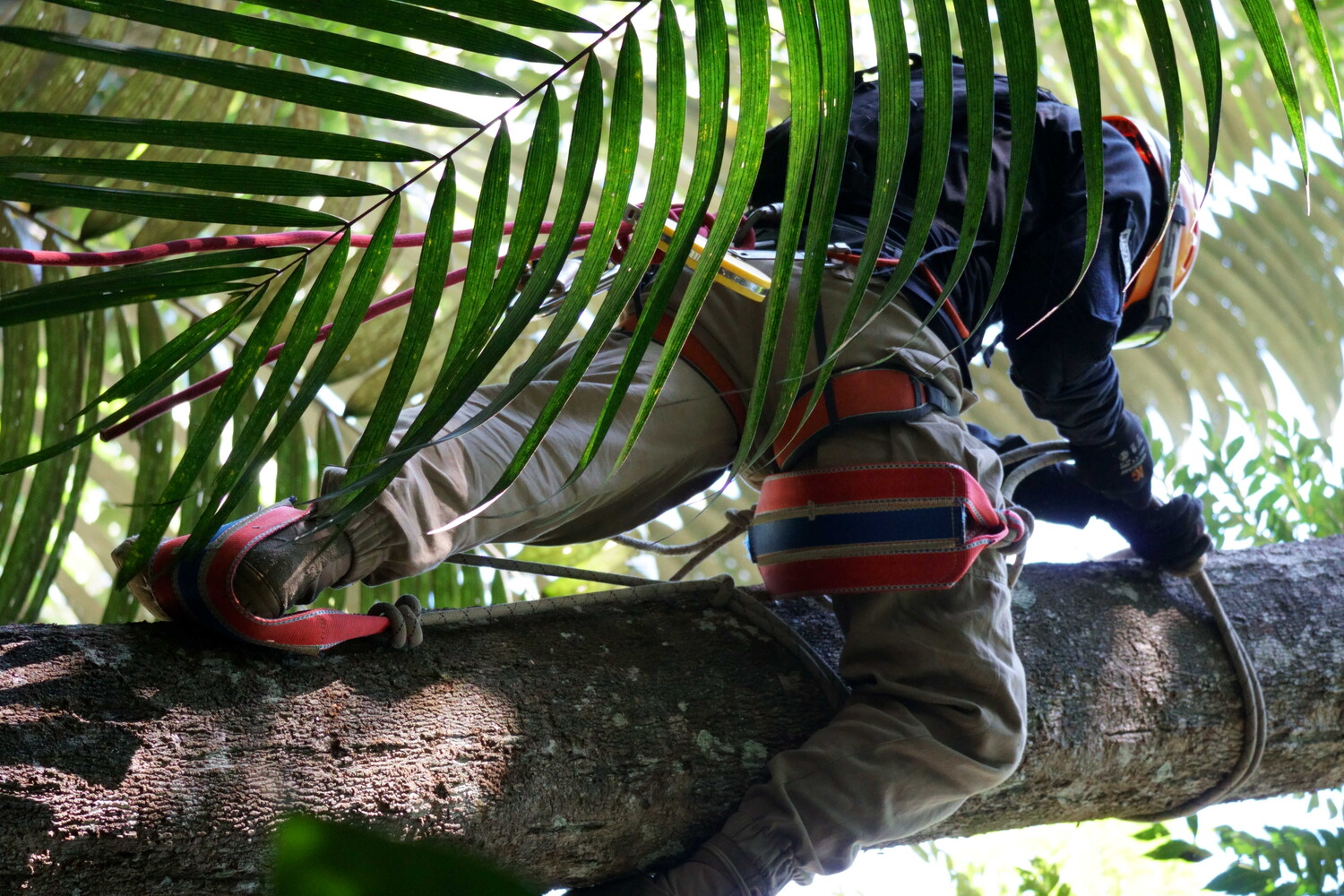
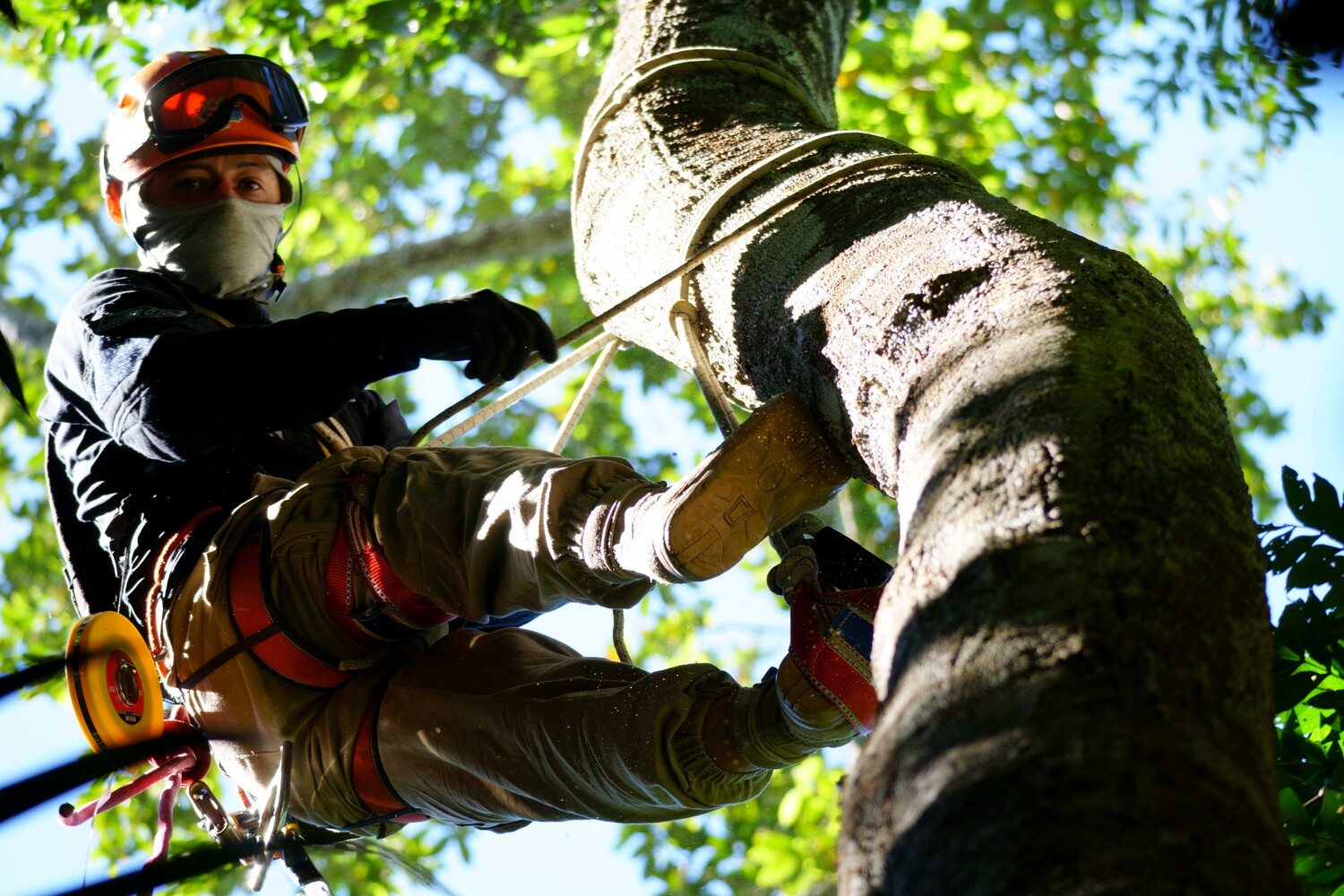
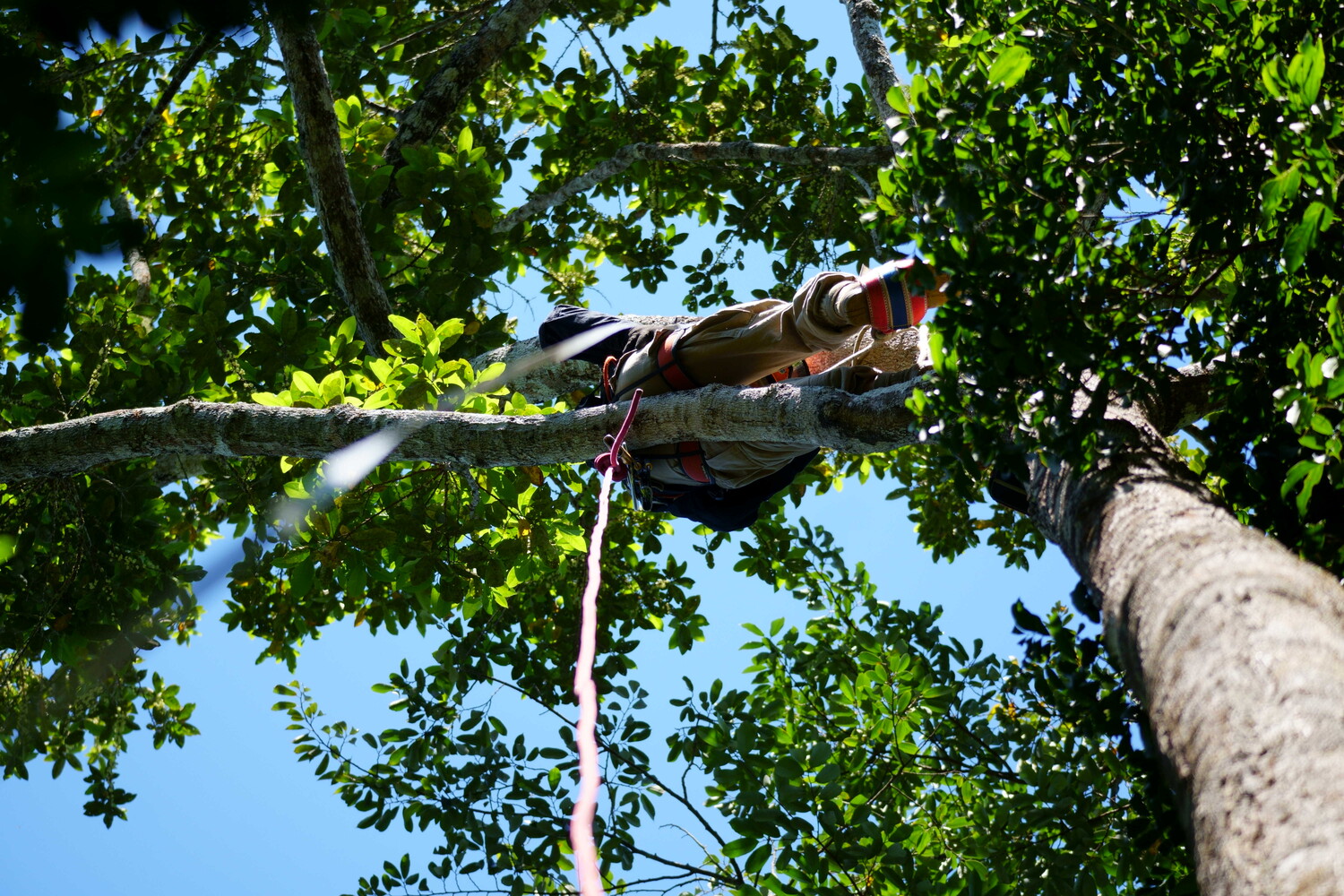
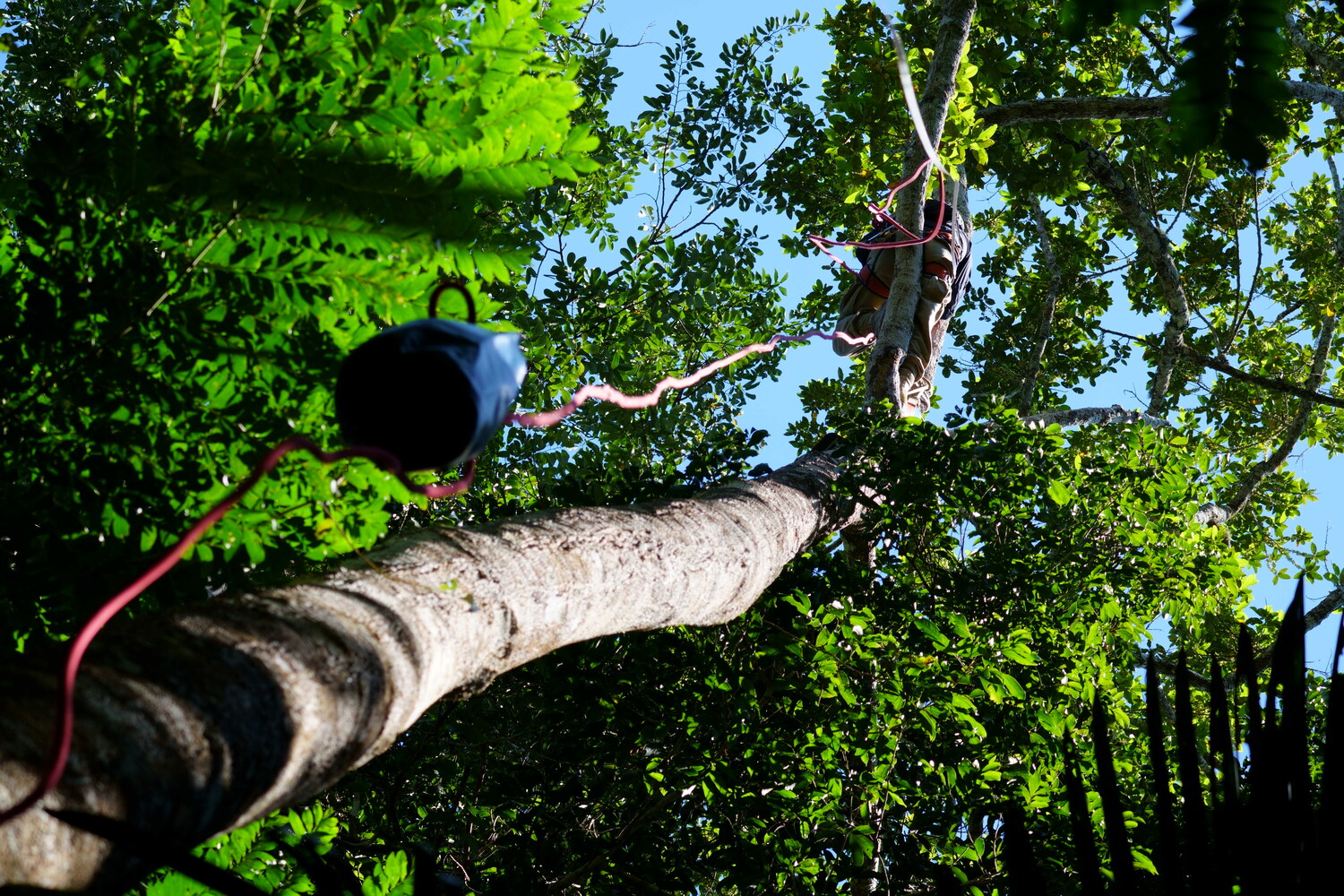
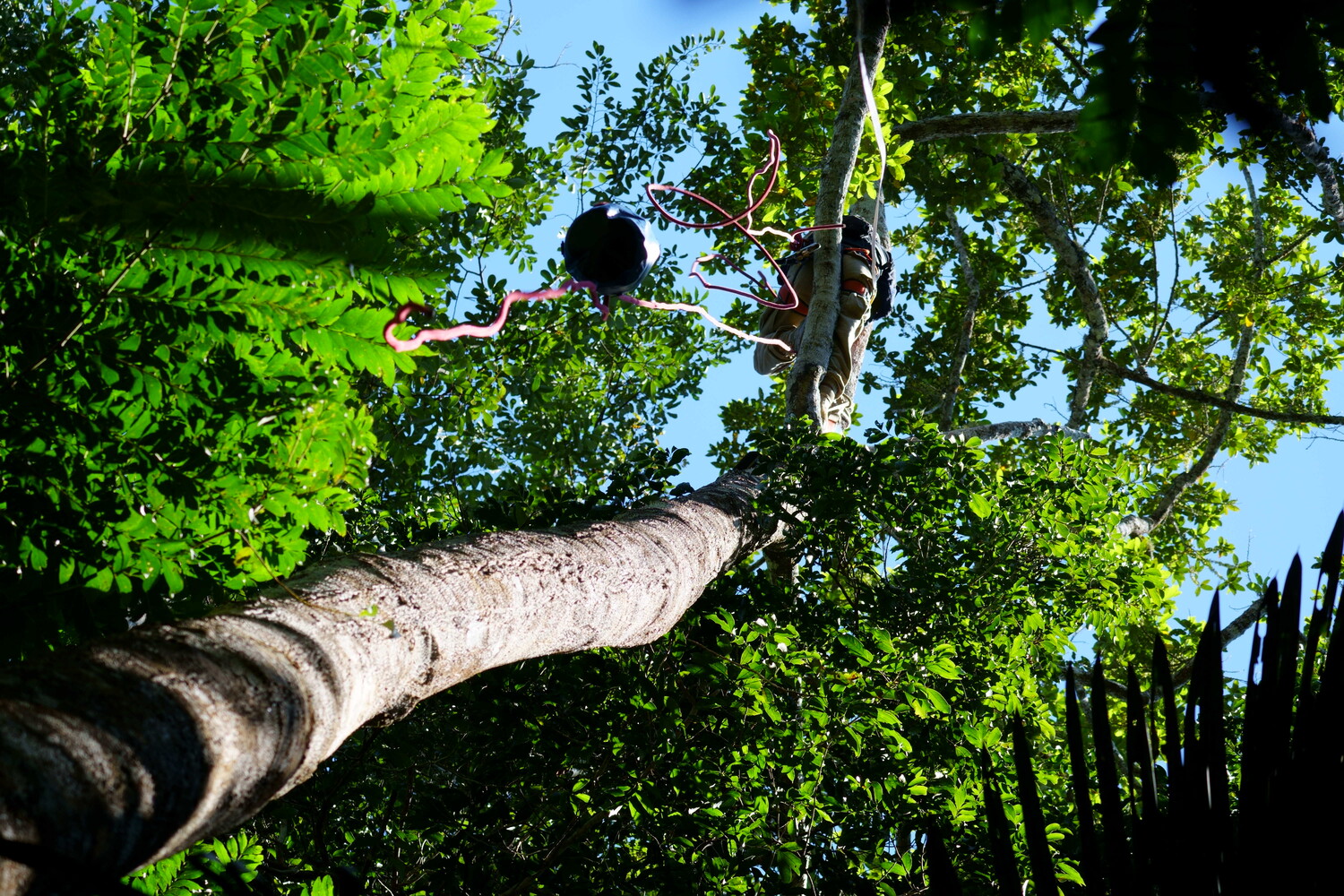
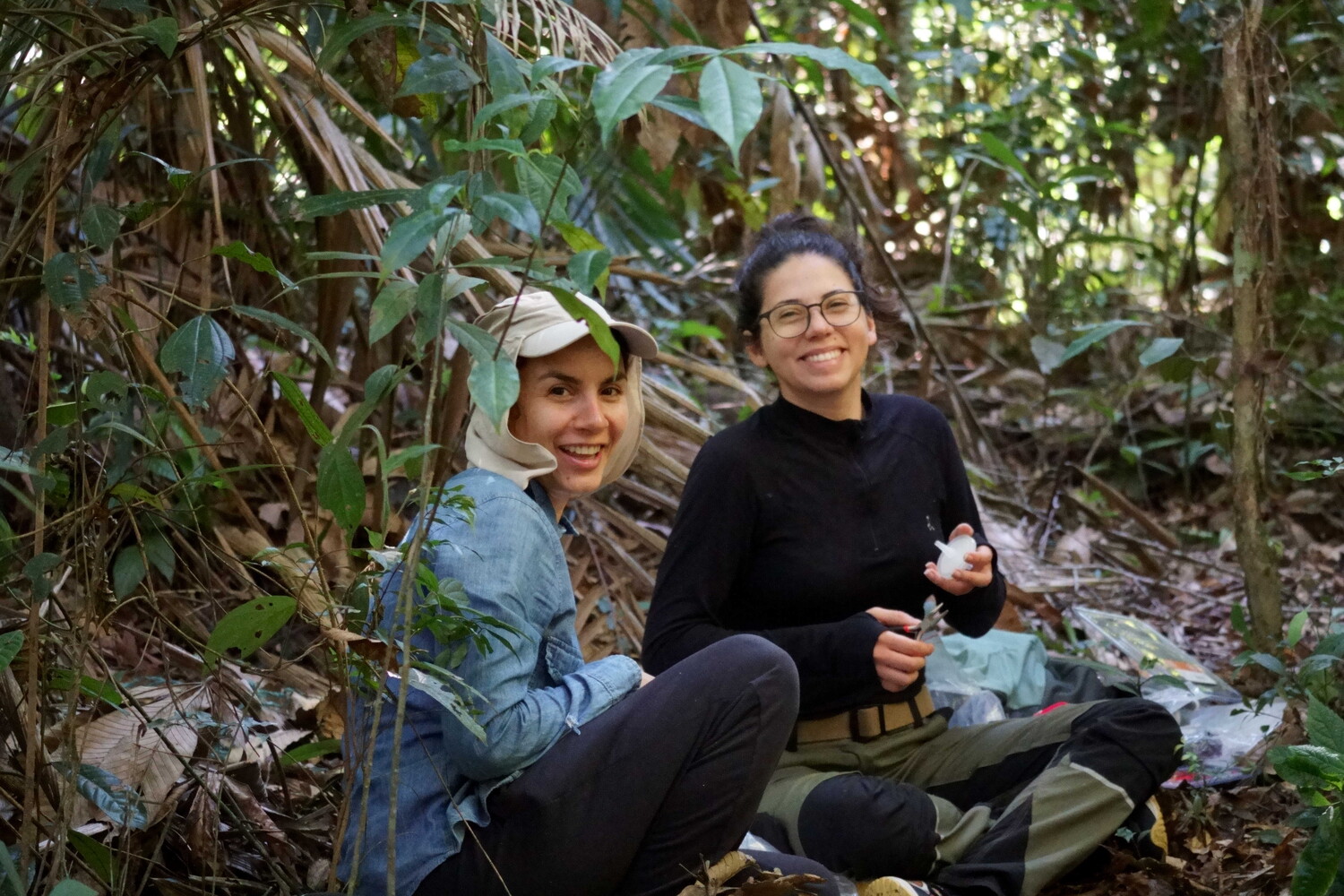
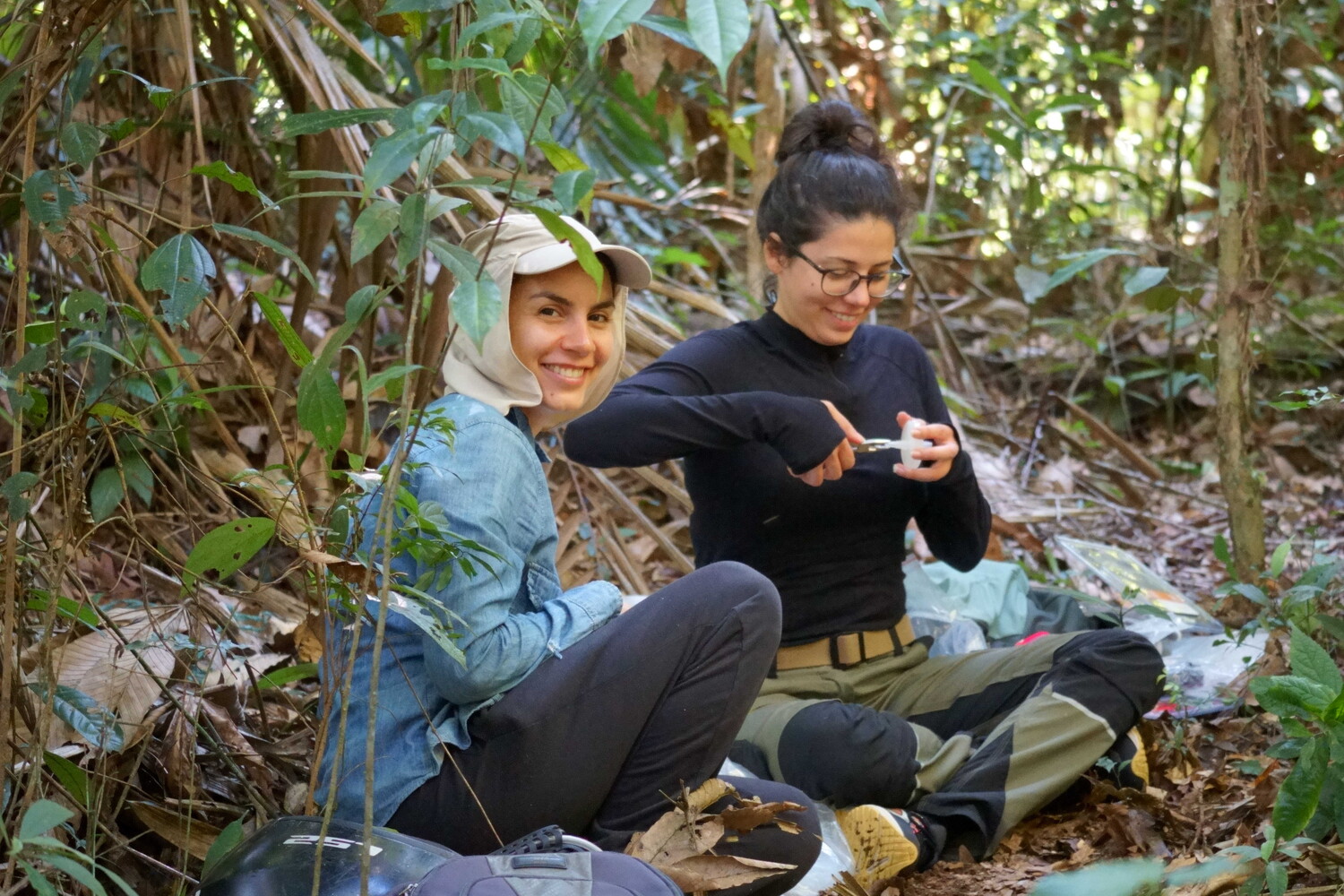
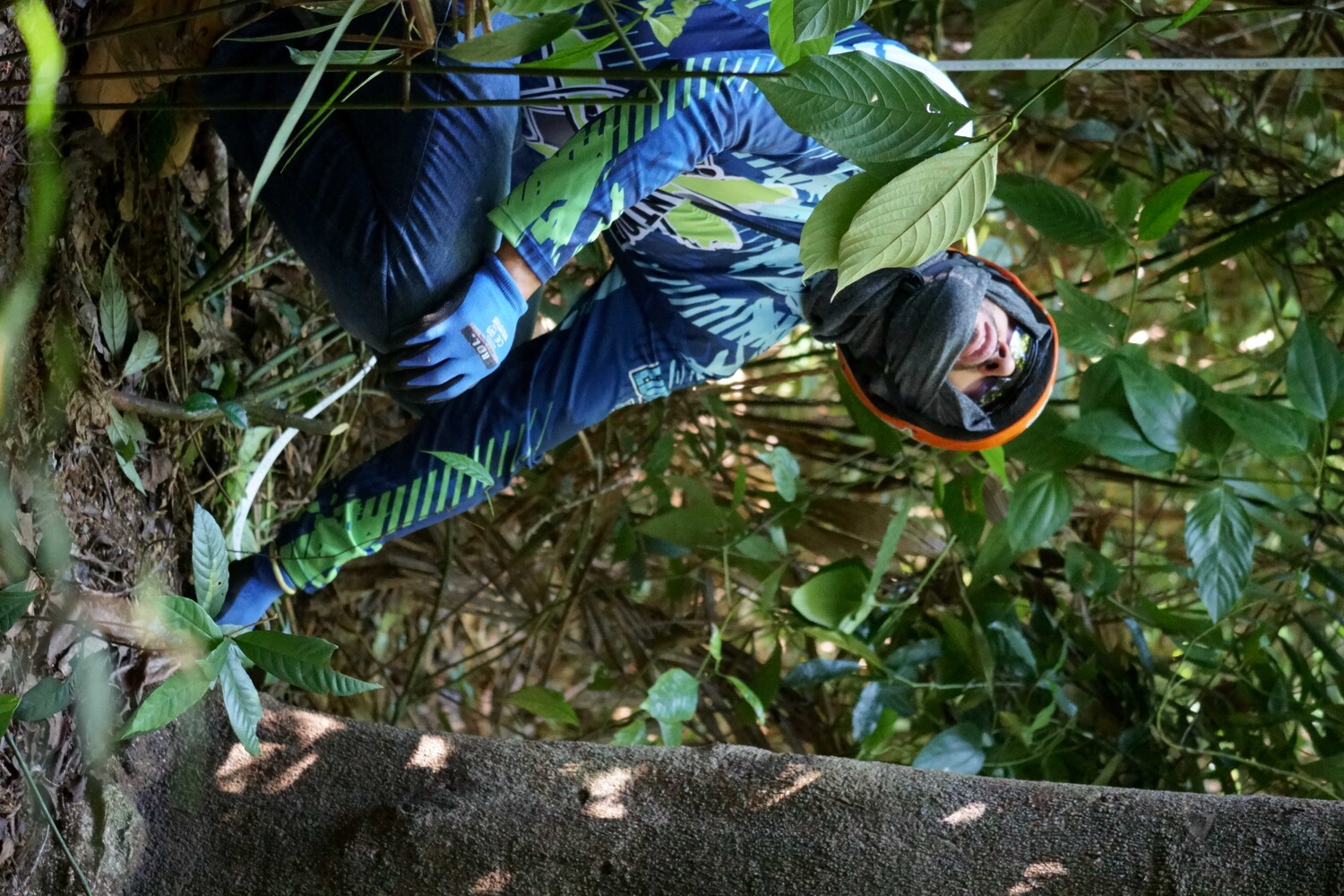
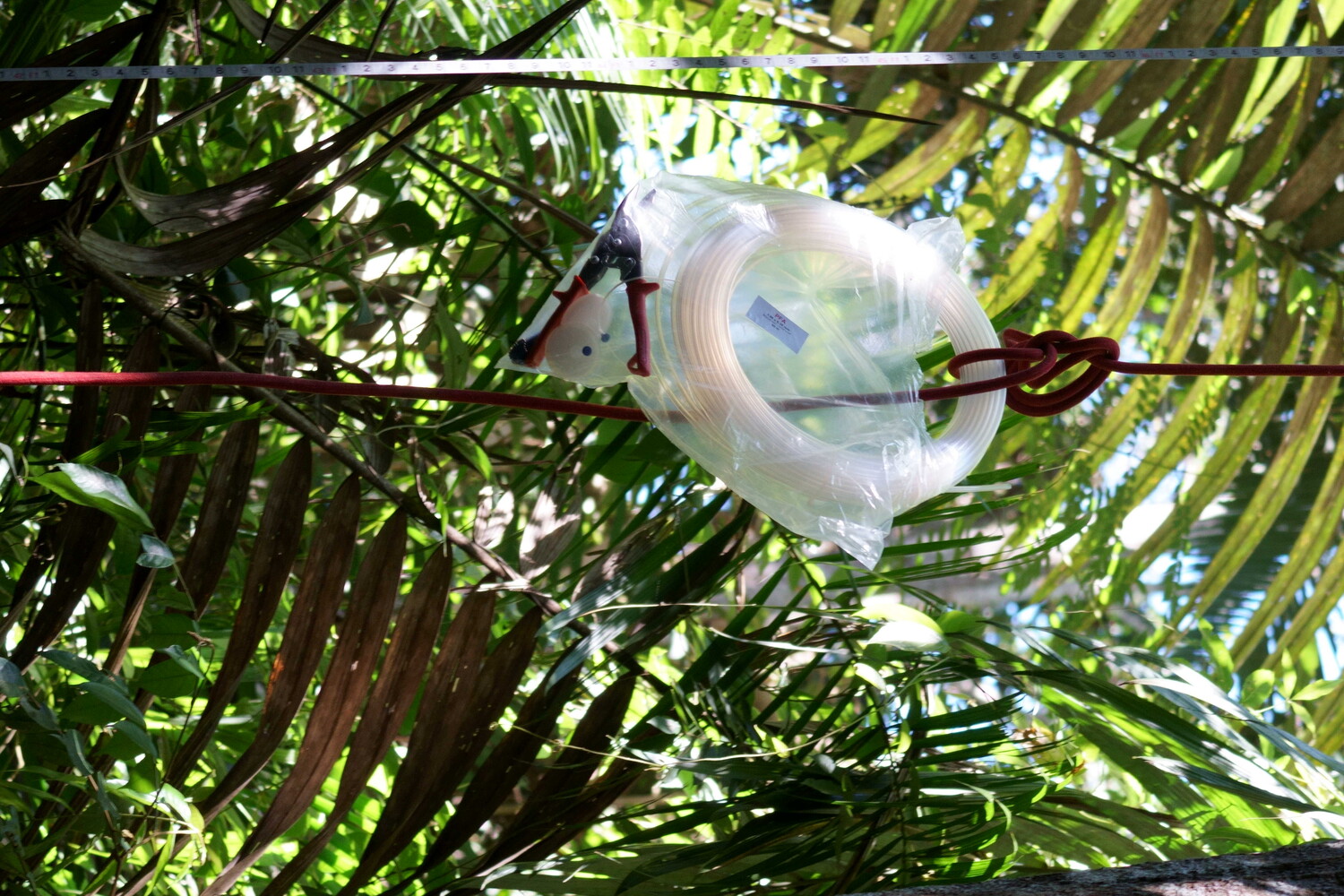
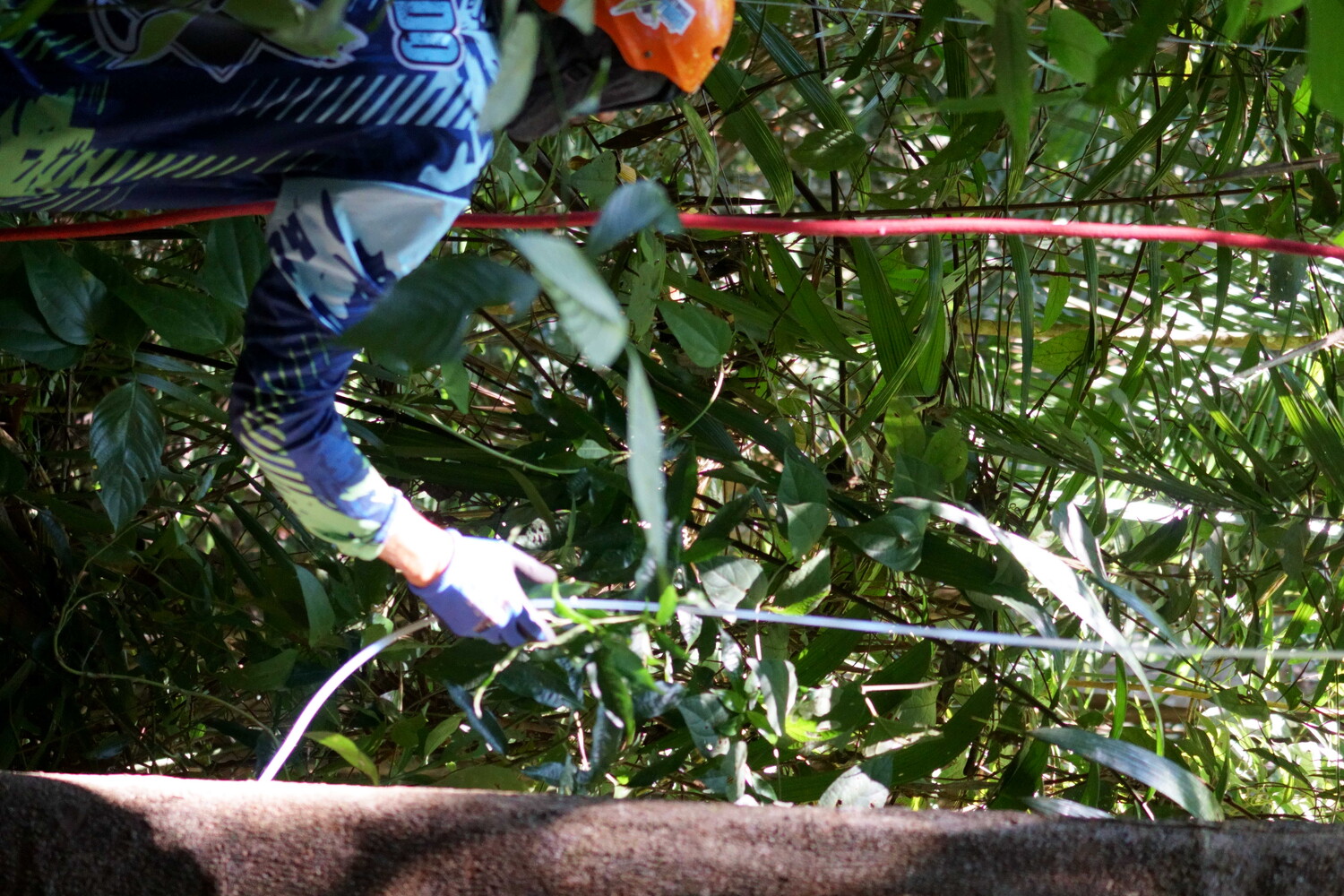
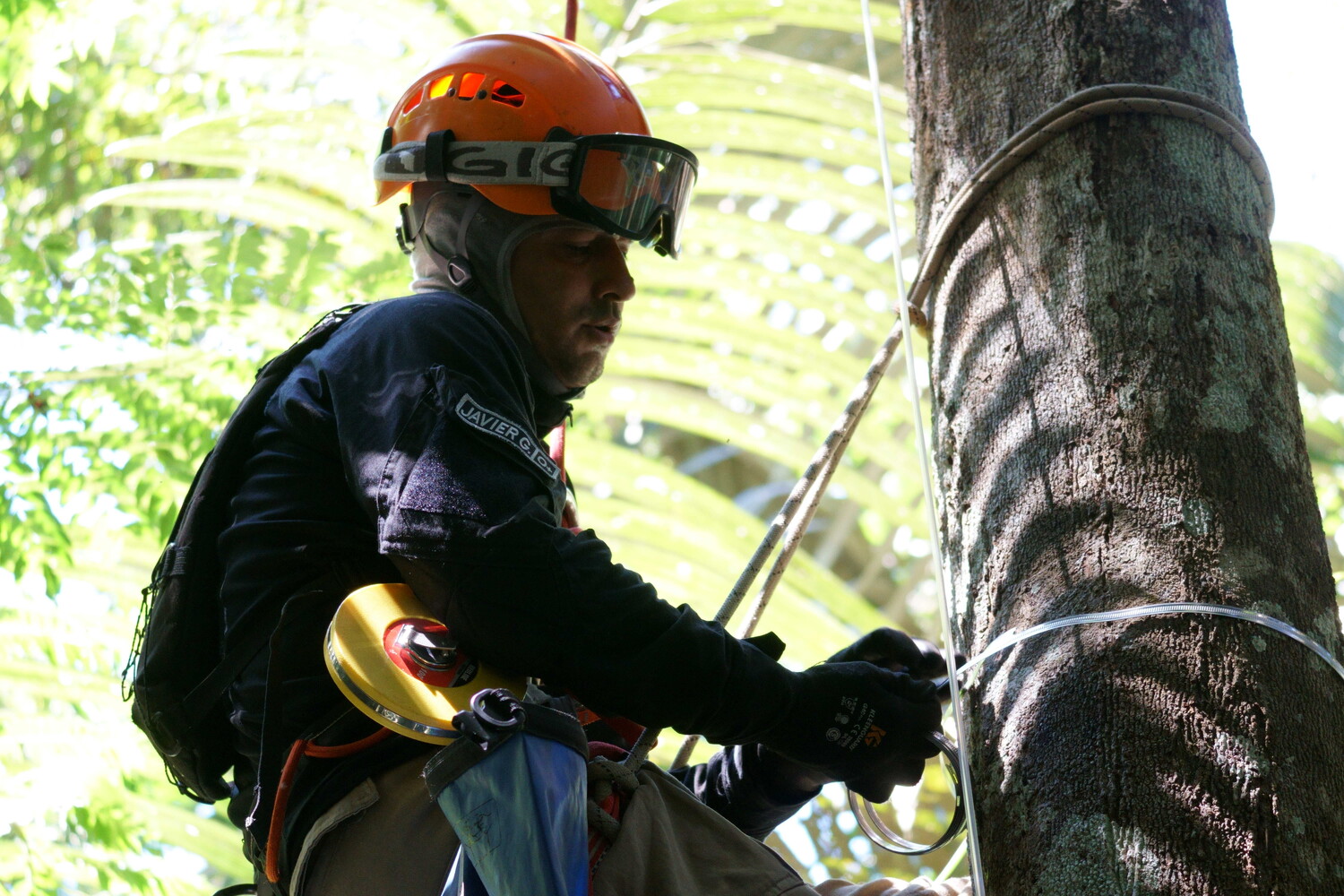
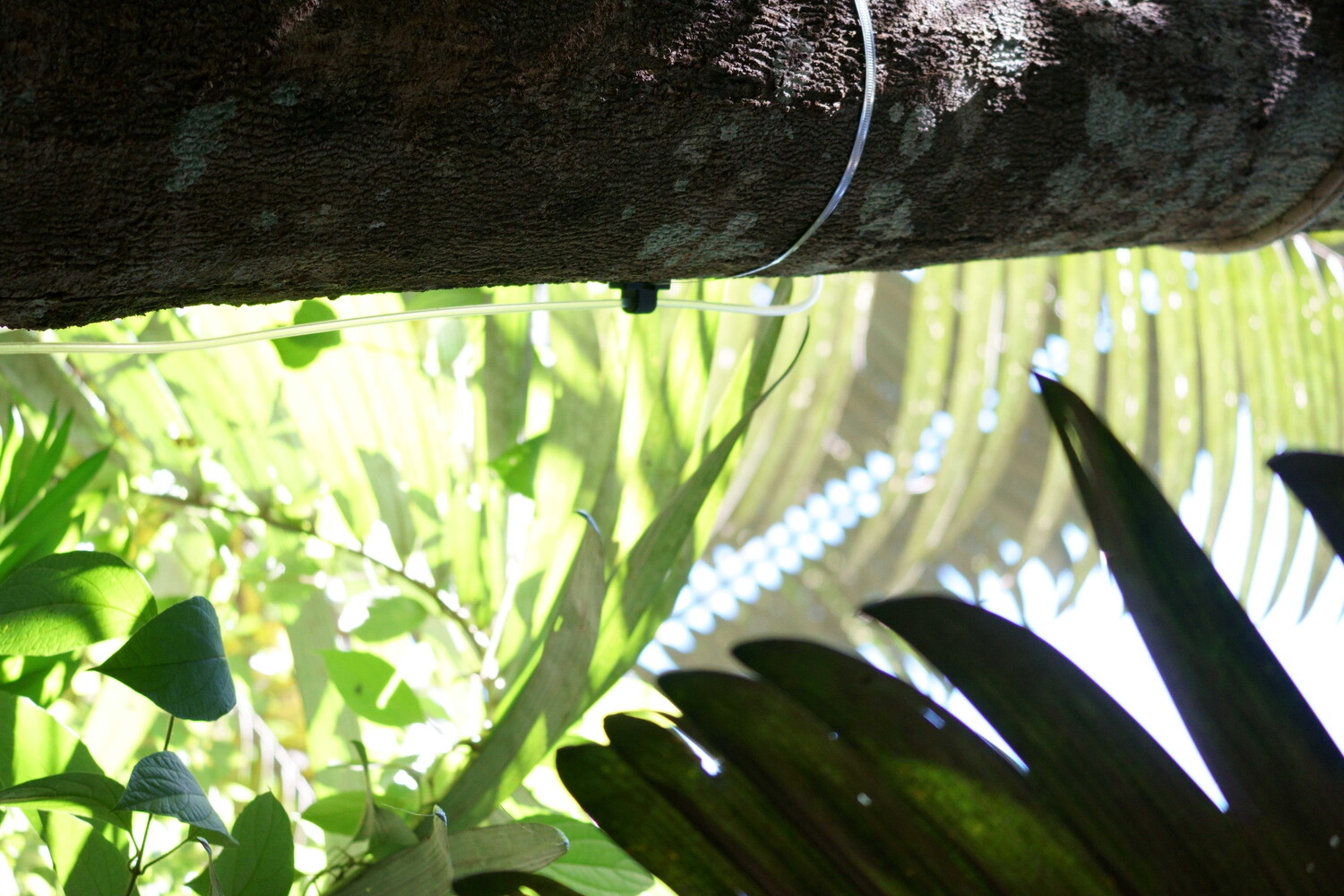
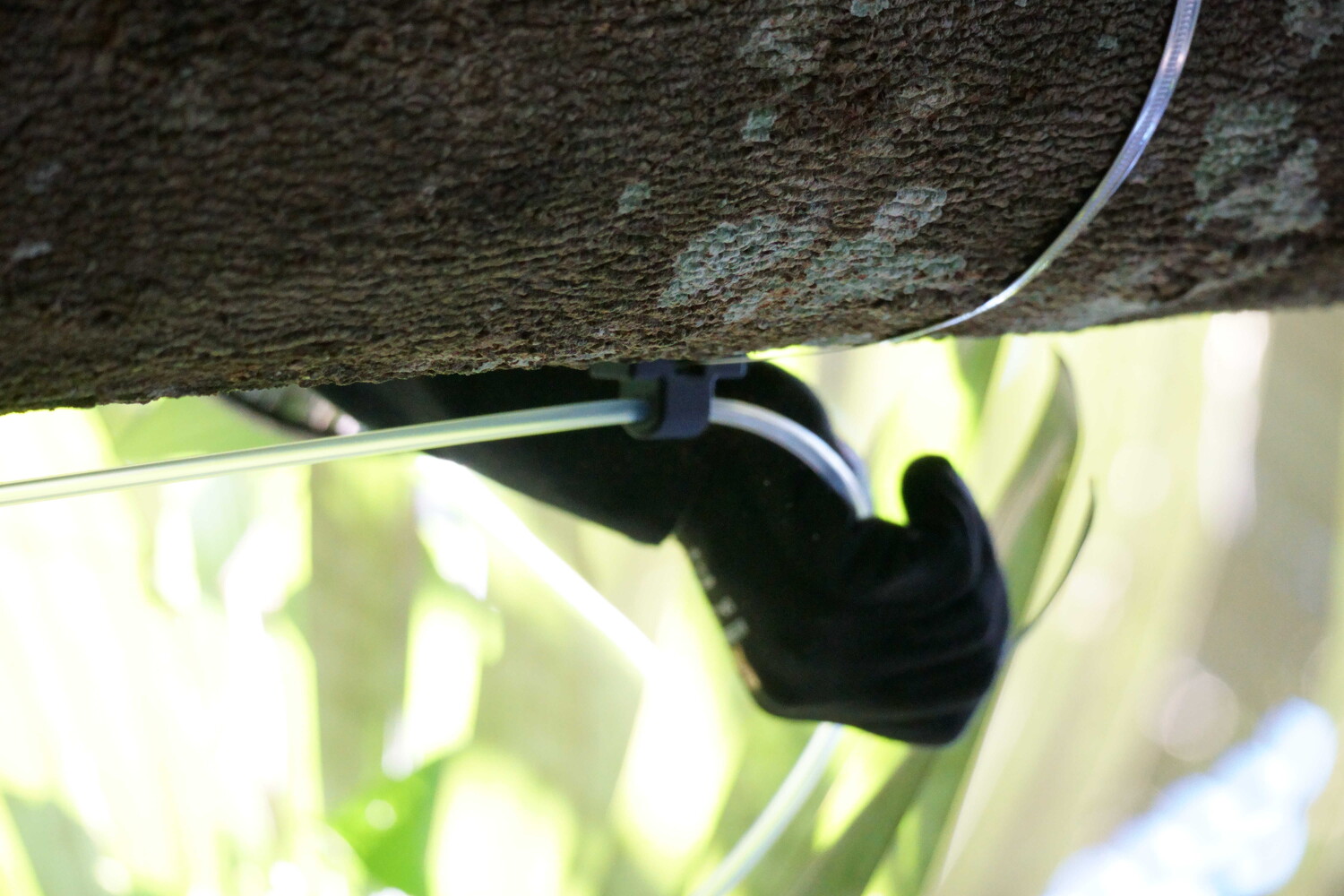
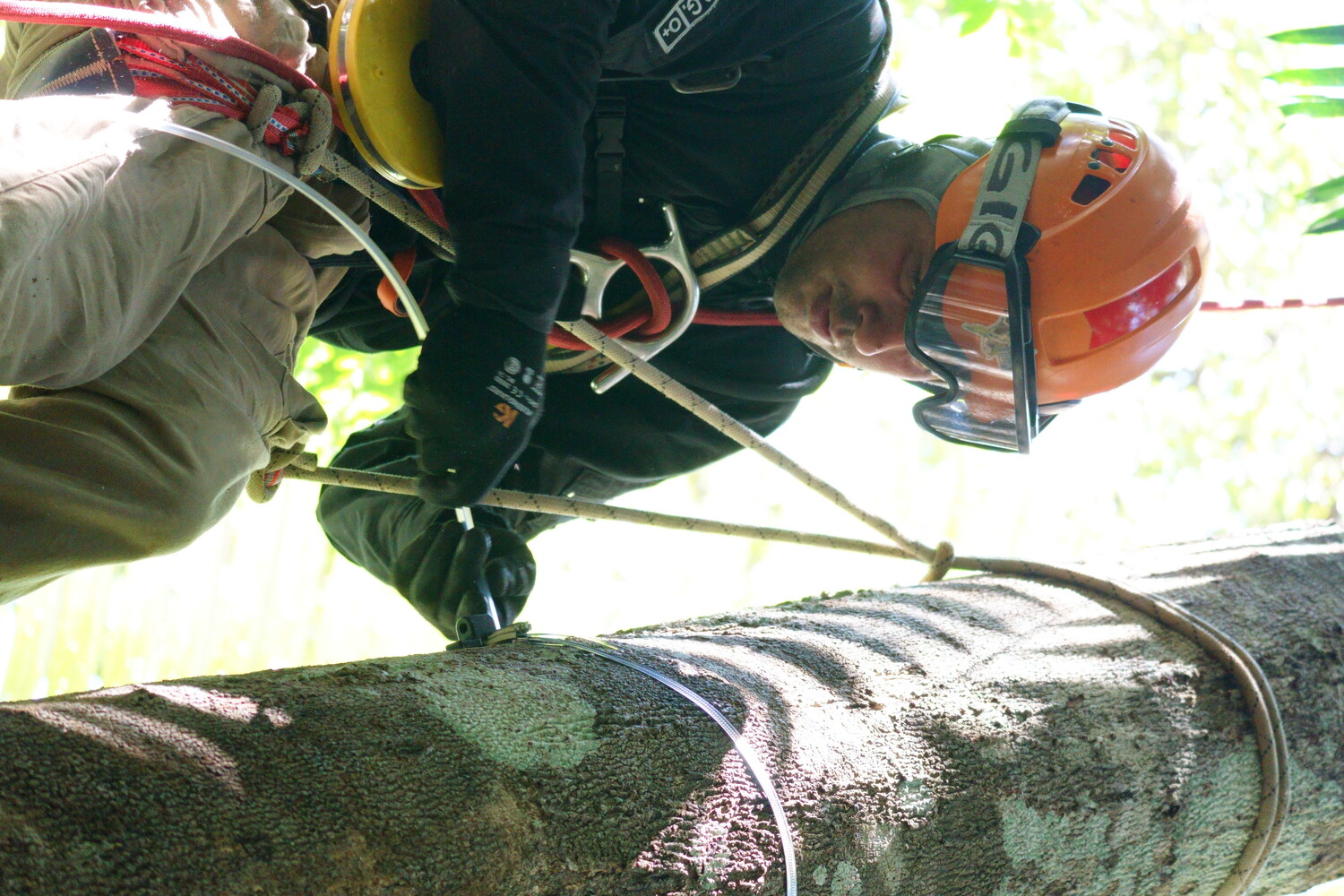
Sampling
Once the tubing was installed, we started the collection of air in 2 L flasks using a portable sampler.
We collected a total of 24 flasks, covering a diaurnal cycle from 6:30 to 17:30, which we expect to capture the maximmum and minimum values of CO2 concentrations for these forests.
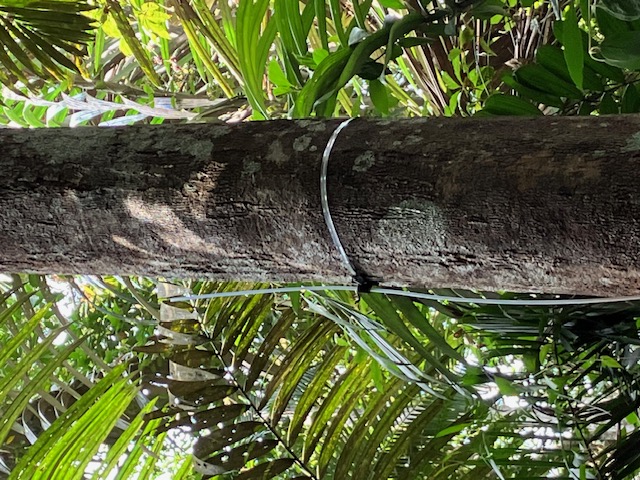
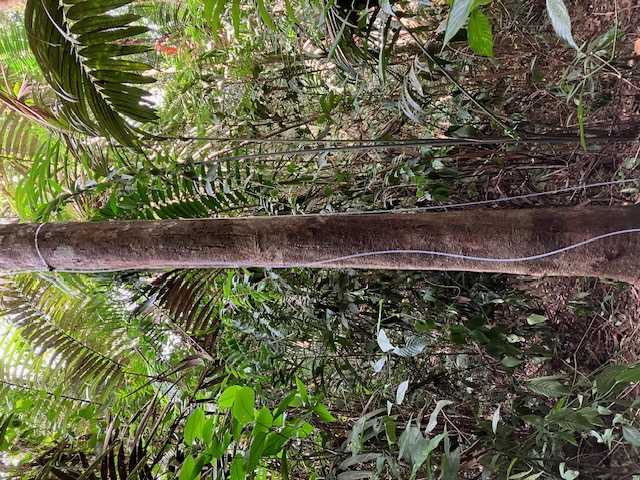
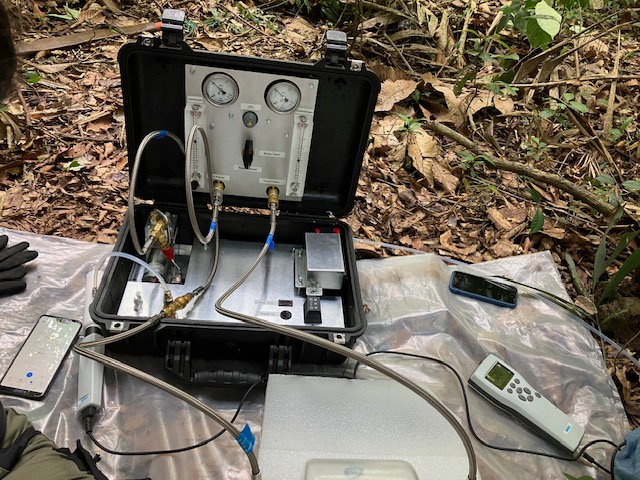
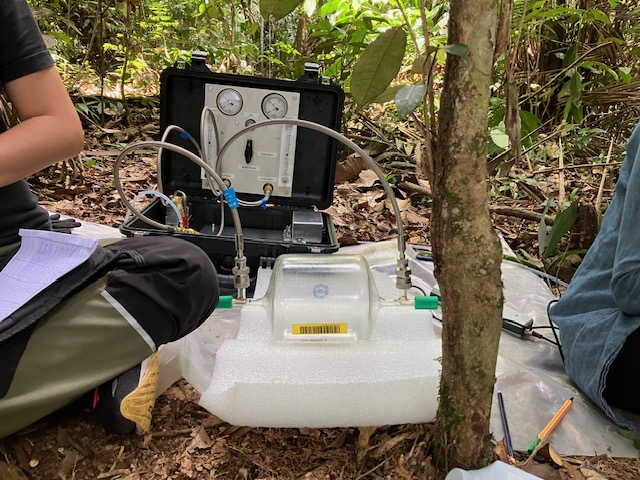
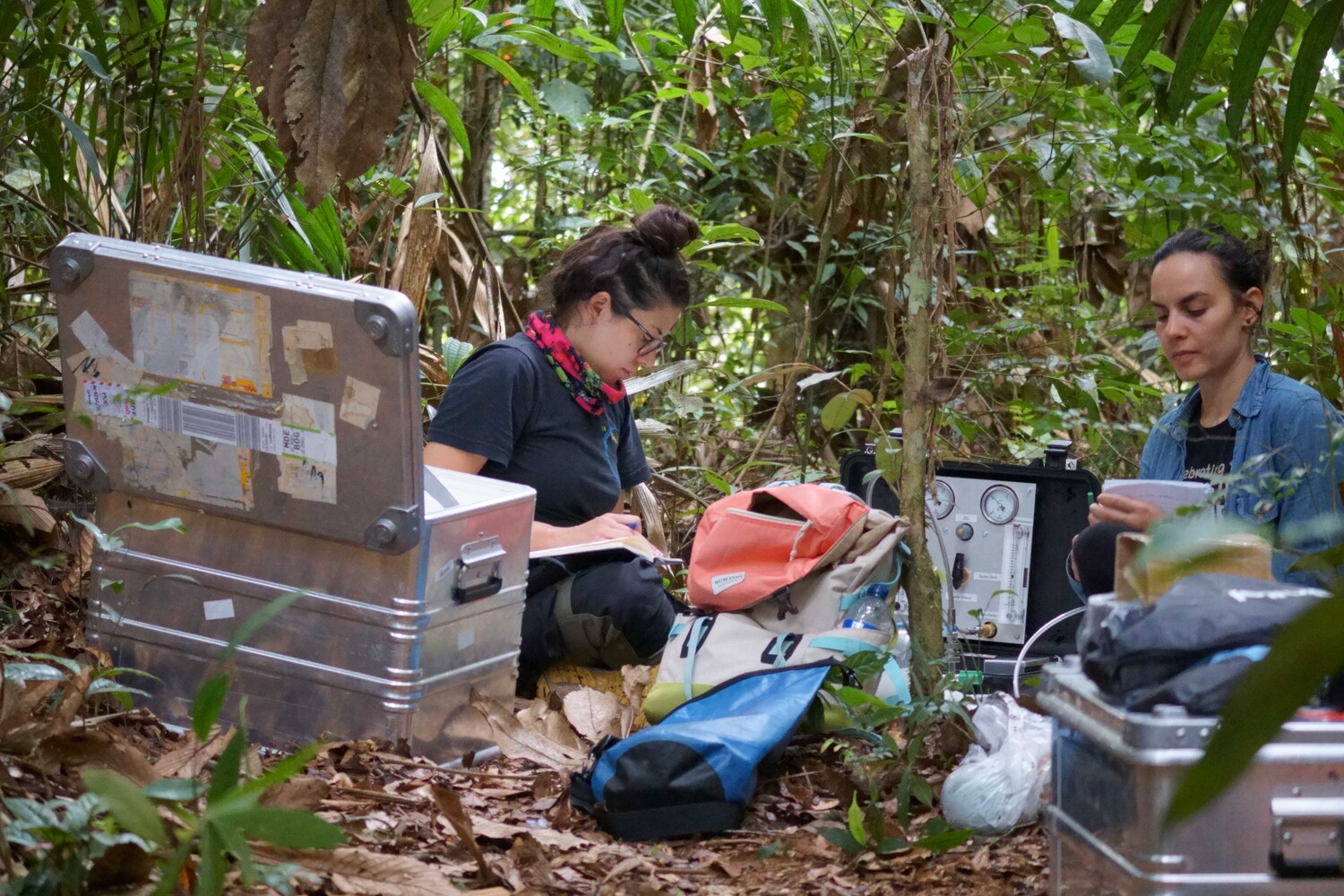
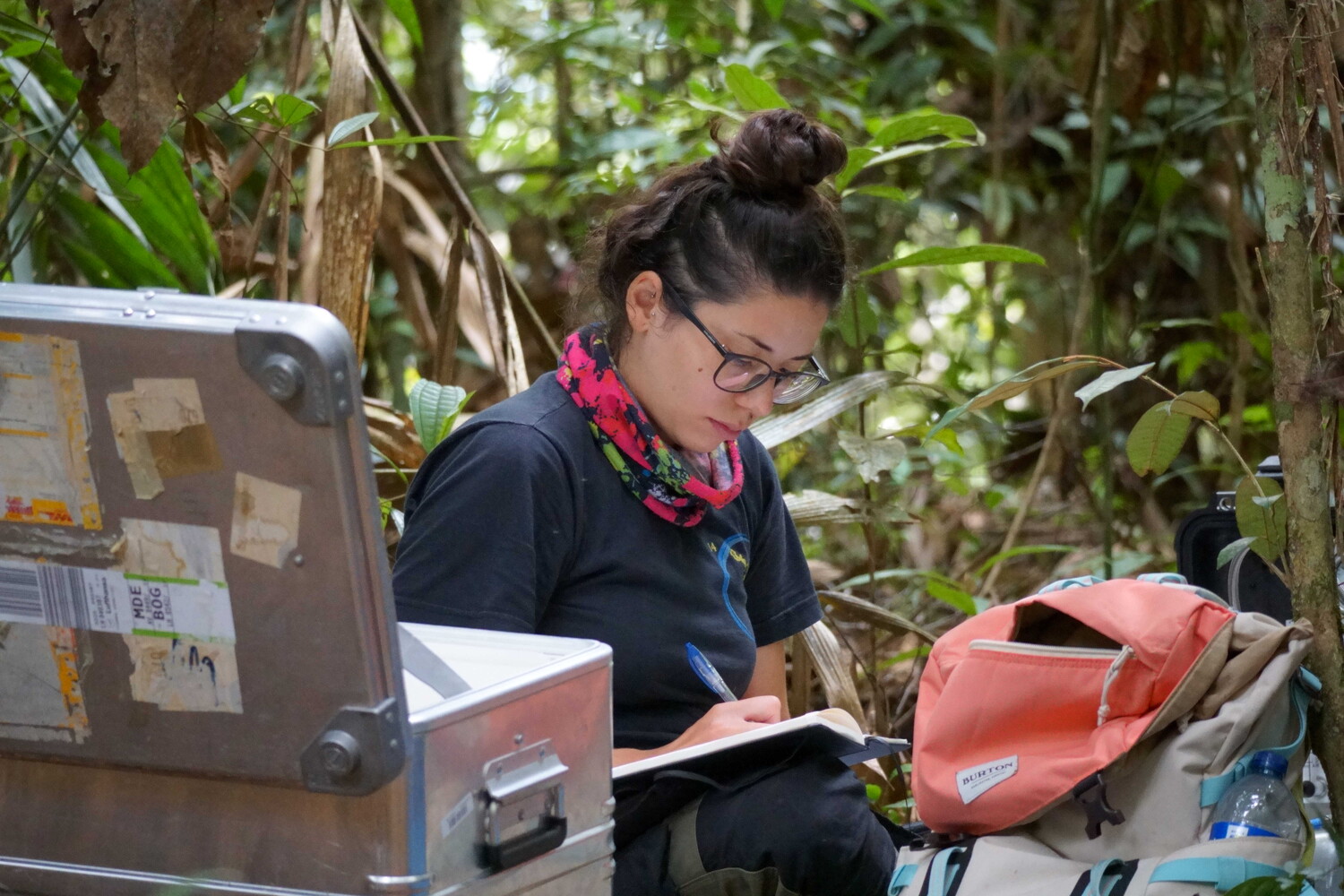
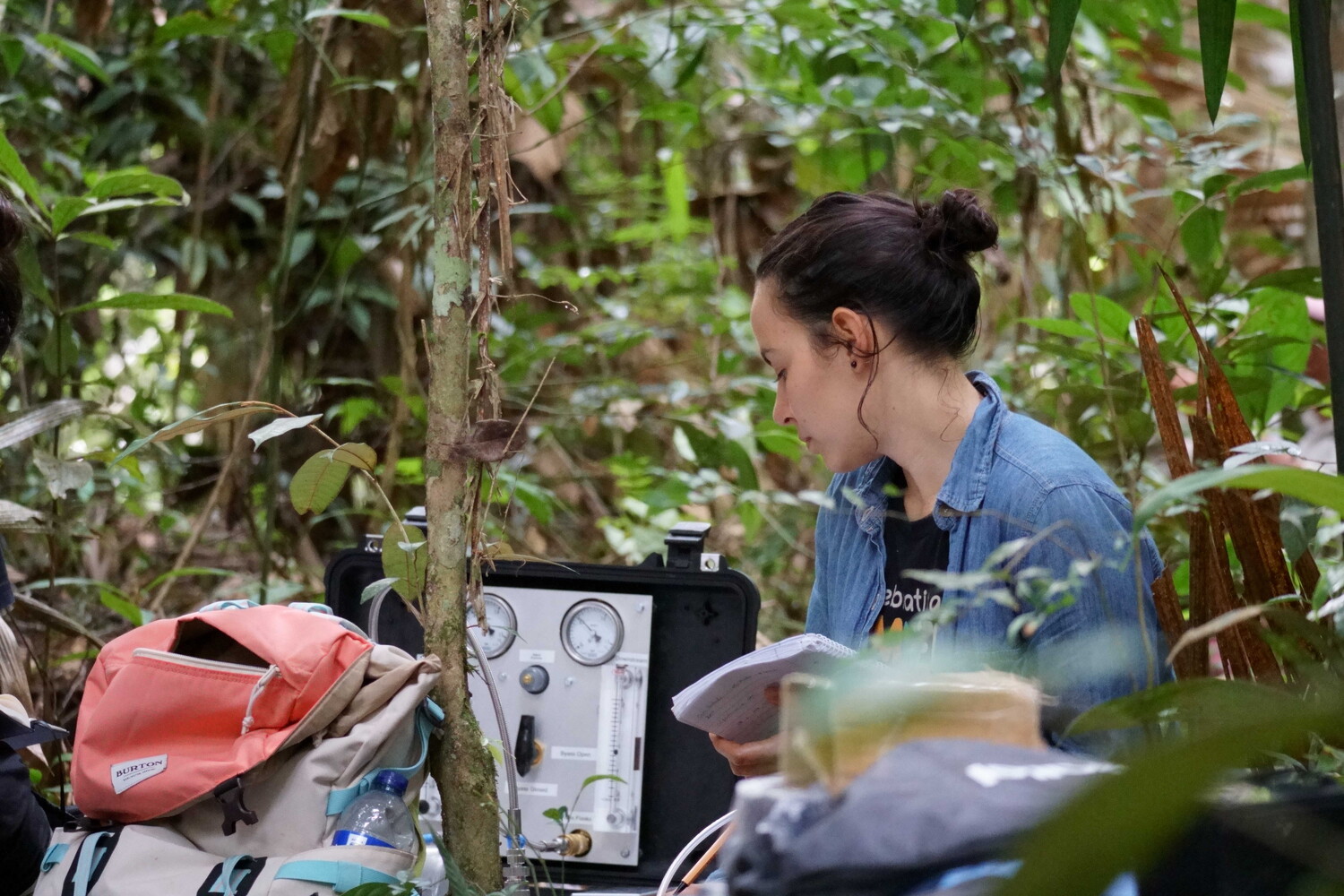
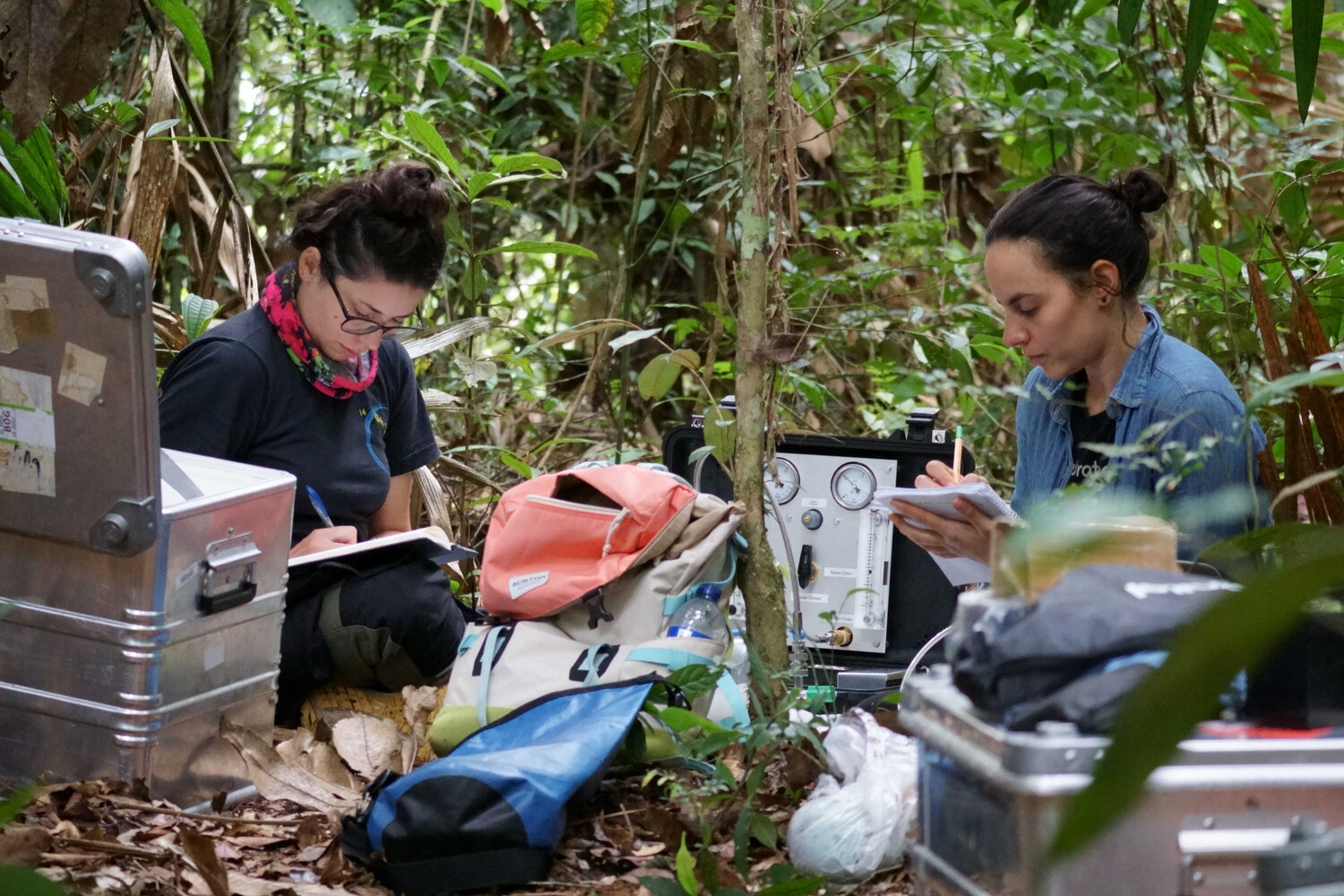


The team
David and Fernando, guardabosques from EPM and pictured below, provided invaluable logistical support. Also, Mónica Sepulveda and Yulie Jiménez from EPM made this sampling possible by facilitating access permits to the forest and accomodation at Los Cedros camp.
Ingrid and Estefania are excellent scientists and made this whole campaign possible.
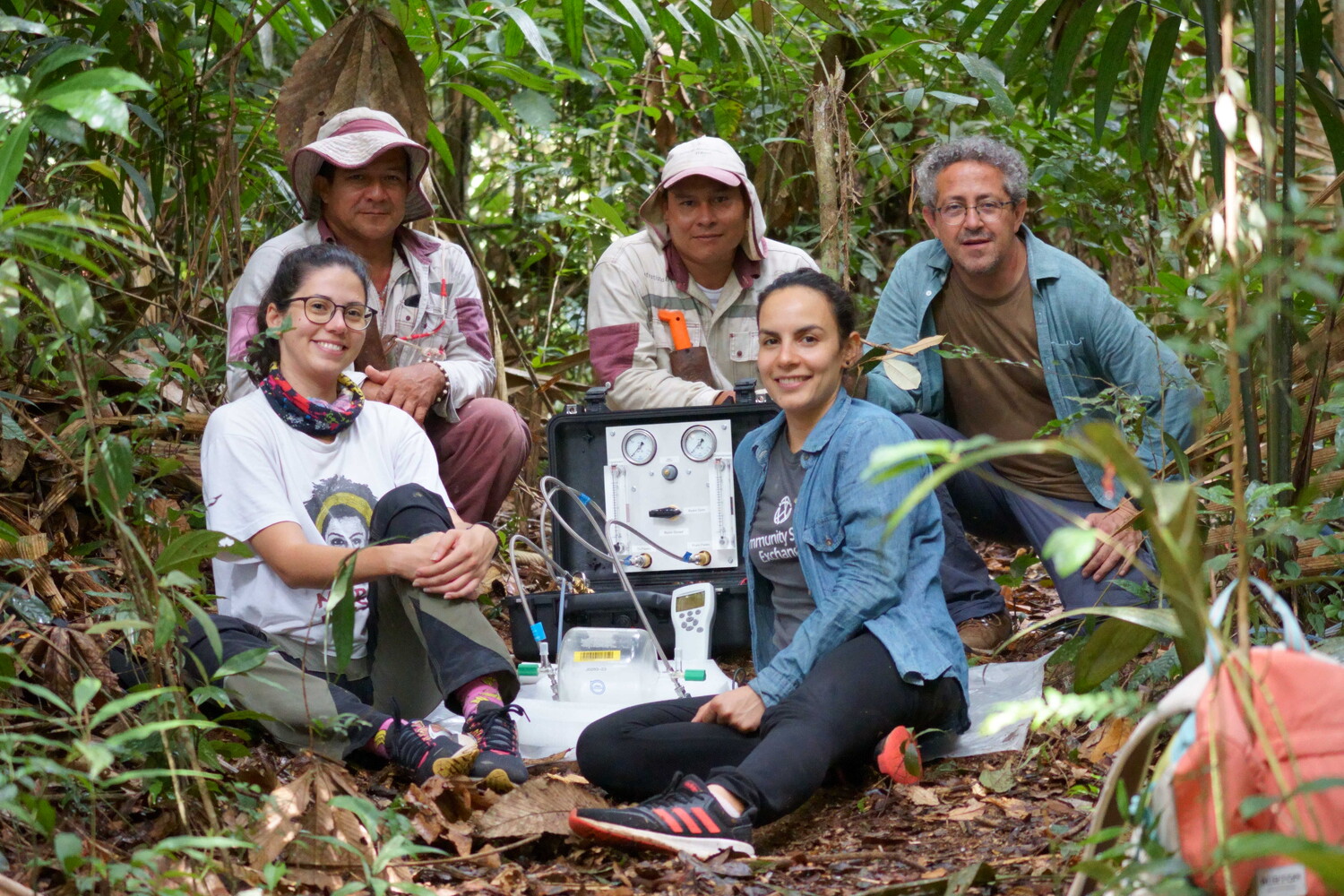
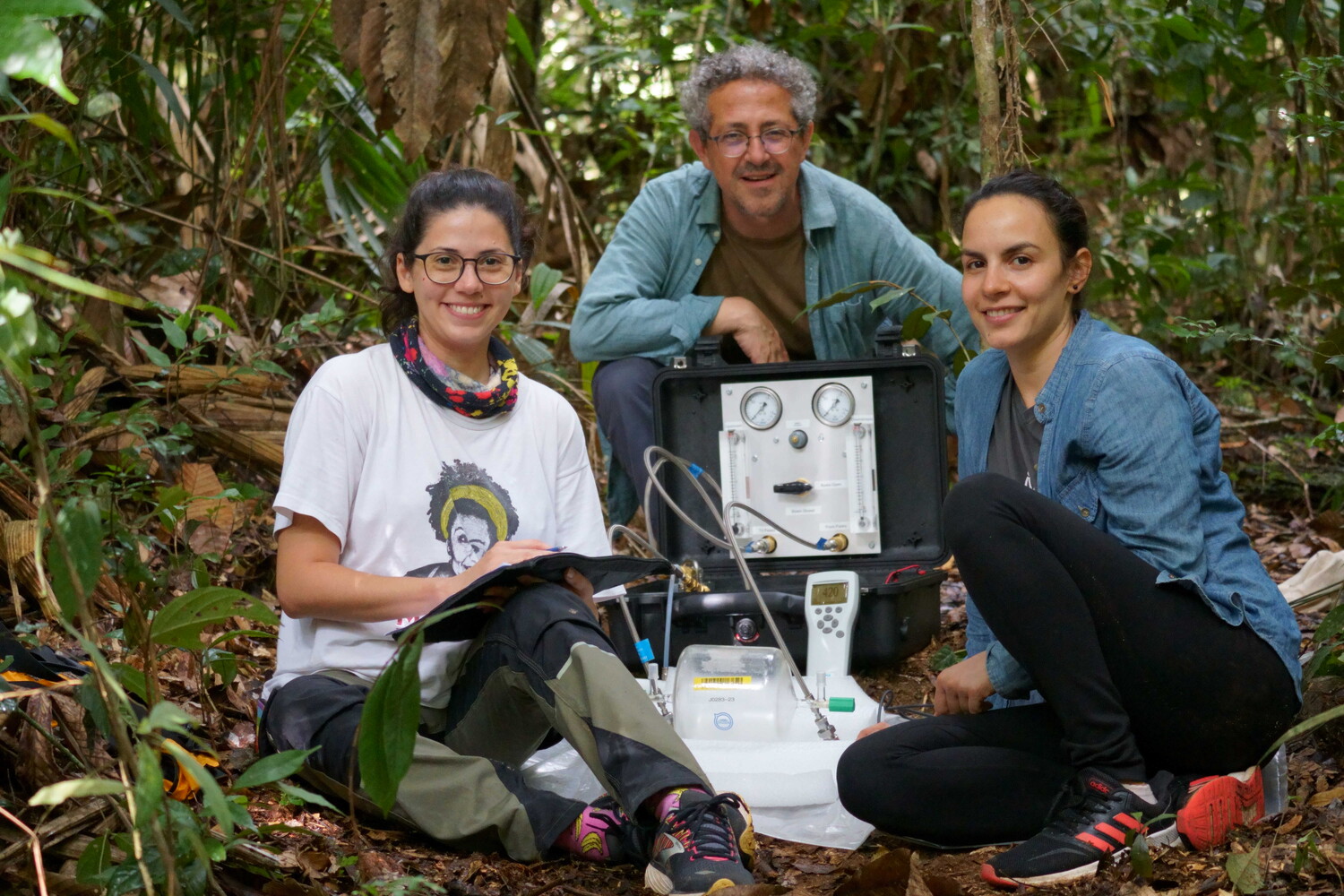
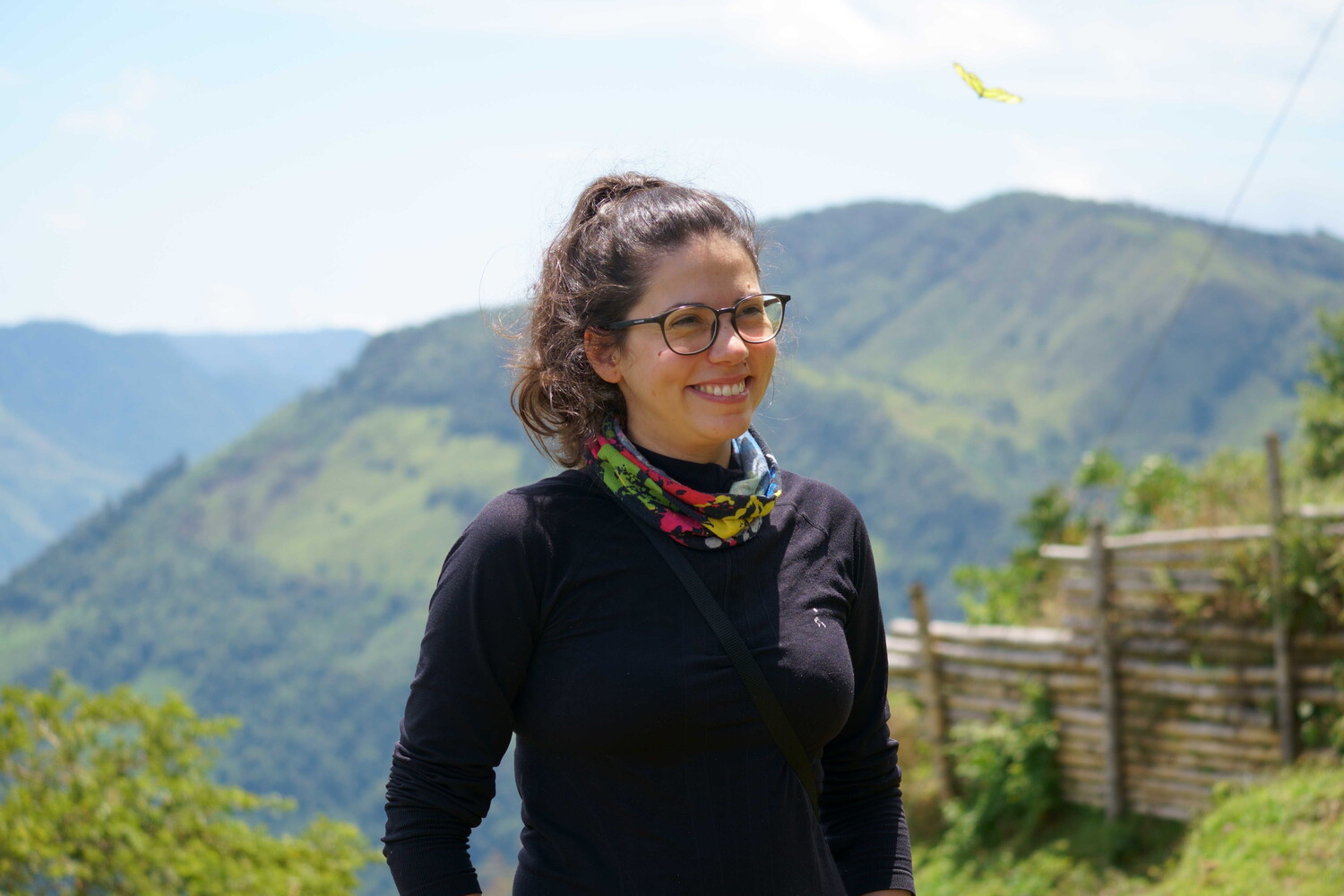
The forest
